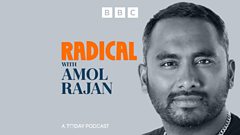The increasing financial reliance of younger generations on their parents, often termed the “Bank of Mum and Dad,” has emerged as a significant societal trend, contributing to a distinct new generational divide. This phenomenon extends beyond initial housing deposits, influencing educational choices, career starts, and general living expenses, potentially exacerbating wealth inequalities between those with and without access to familial financial support.
Historian Dr. Eliza Filby has explored the multifaceted implications of this growing dependency, offering perspectives on how young individuals can navigate and thrive in an economic landscape that increasingly pressures them to lean on family wealth. Her insights emphasize the importance of cultivating self-reliance and identifying pathways to success that do not necessitate significant parental financial contributions.
For many, the absence of a substantial family safety net necessitates a proactive approach to financial planning and career development from an earlier age. This often involves prioritizing financial literacy, understanding budgeting, and making strategic educational and career choices that align with economic realities. Developing adaptable skill sets and embracing lifelong learning become crucial tools in navigating evolving job markets.
Furthermore, thriving without inherited wealth often involves fostering a strong sense of personal agency and resilience. It can mean exploring alternative routes to traditional milestones, such as shared living arrangements, innovative savings strategies, or entrepreneurial ventures that require less initial capital. Dr. Filby’s work implicitly suggests that while financial independence may present immediate challenges, it can also foster greater resourcefulness, a stronger work ethic, and a deeper appreciation for earned success. The conversation around the “Bank of Mum and Dad” therefore shifts from a narrative of disadvantage to one that highlights the potential for independent achievement and the development of robust personal financial foundations.



